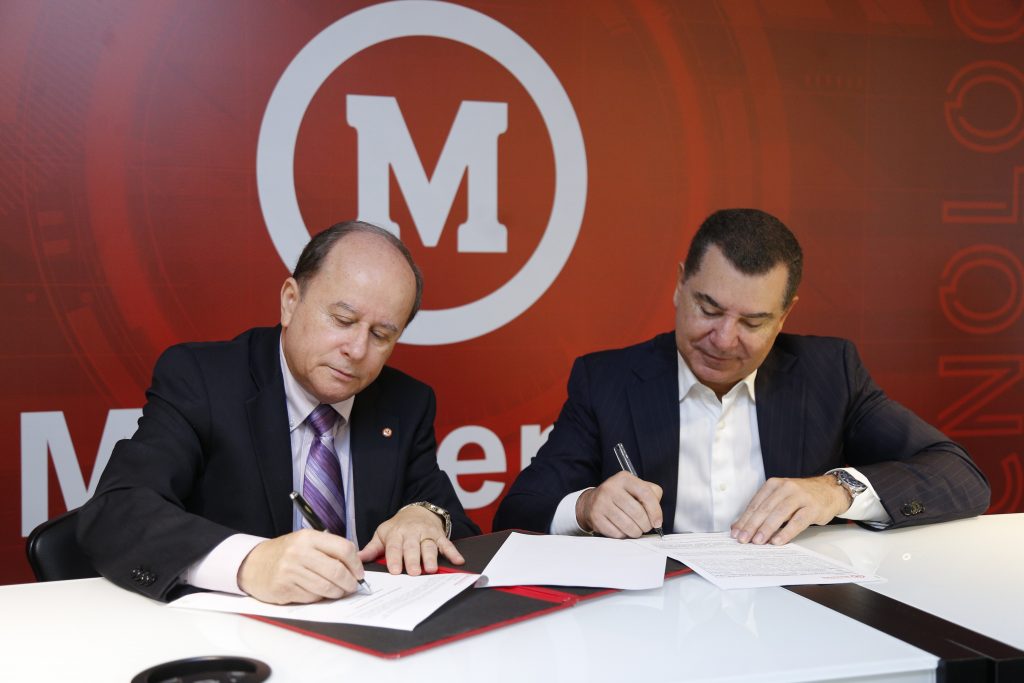São Paulo – In a bid to encourage Brazilian companies to make international sales, the municipal export and investment agency São Paulo Negócios and Presbyterian University Mackenzie entered into an agreement to hold export-oriented training events. The deal was signed in November, during the “Log Your Future” workshop on innovation in export logistics, at the university auditorium.
The partnership will enable some of the services offered by the university to be expanded. “This is a comprehensive agreement. In tandem with São Paulo Negócios, we will find out where Mackenzie can provide consulting for projects by companies looking to sell abroad,” said to ANBA professor Marcos Antônio de Andrade, of Mackenzie’s Foreign Trade Group.
The university expects the agreement to cover fields including logistics. “International Logistics is on our radar and the professors can help. I understand what Mackenzie’s expertise is. We imagine that this will open up a bevy of possibilities,” he argued. This is an umbrella agreement covering various projects over a five-year period. The actions should be decided on in meetings early next year.
Arab market
Projects amenable to being boosted include the Global Business Environment Monitoring System (Sistema de Monitoramento do Ambiente Global de Negócios – SMAGN). “The idea is: if you make computers and you would like to sell them on the international market, this system will find prospective buyers, and whether there are Brazilian companies selling product there. If not, what are the obstacles? What characteristics does that market have that might make the product attractive to buyers,” explained Andrade.
The SMAGN’s first ‘test run’ was done in an Arab country. “When we did the first exercise, coincidentally or not, we did it in Bahrain. We ran a simulation of a personal care product to ascertain its viability in that country. The goal is to show what we can offer a market such as this,” said the professor.
Andrade explains that the work is done on-demand and can apply to any country. The system’s methodology considers cultural, administrative, geographic and economic aspects. And what was the diagnosis from the test in Bahrain? “The convergences outnumbered the divergences. The geographic issue is a bit of an impediment, but when it comes to administrative and economic aspects, the convergence was greater,” concluded Andrade.
The agreement is expected to enable work to be done at a below-market cost. “To create a more accessible environment, including by giving an idea of returns to scale for each specific business. We usually offer this to associations like Abimaq (the Brazilian Machinery and Equipment Industry Association), and it will replicate it to the actual enterprises. The idea is to do this at a bigger scale, with companies looking to enter the foreign market.”
Free services
Another service expected to expand is offered free of charge. “The fiscal support hub (Núcleo de Apoio Fiscal, NAF-Comex) caters to micro and small business by issuing Radar, the authorization required for export and import operations. We provide this support freely, in partnership with the Federal Revenue Office,” the professor explained regarding the services rendered by professors and supervised students.
The university is also working on a project that relates to the Postal Service. “We are rolling out mail import assistance. The Federal Revenue put more flexible rules in place via a resolution this year, so micro and small businesses could import in a more streamlined way. We support them in doing that,” said Andrade.
How to apply?
The services are already available from Mackenzie. All it takes to apply is to get in touch with the team and schedule an appointment. The project is currently in recess, with activities set to resume in early February 2019.
Quick facts
Mackenzie – Rua Maria Antônia, 163, mezzanine, São Paulo, SP
+55 11 2766-7028 / https://www.mackenzie.br/
Translated by Gabriel Pomerancblum




